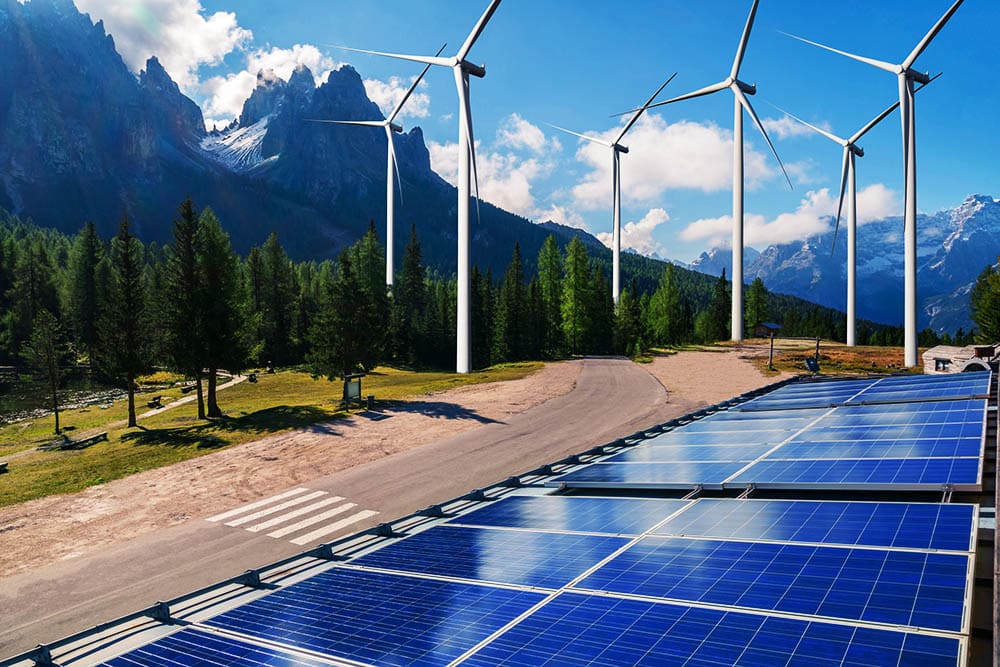As the world faces the impending threats of climate change and dwindling fossil fuel reserves, it becomes crucial for us to shift our focus towards clean and sustainable sources of energy. The concept of clean energy has gained significant traction in recent years, offering a glimmer of hope for a sustainable future. In this article, we will delve into the importance of clean energy and its potential to empower our future while ensuring the well-being of our environment.
The Urgency of Transition
The daunting consequences of climate change, such as rising global temperatures, extreme weather events, and the loss of biodiversity, necessitate an urgent transition to clean energy sources. Fossil fuels, which have been the backbone of our energy infrastructure for decades, contribute significantly to greenhouse gas emissions and exacerbate the effects of climate change. It is imperative that we shift away from this carbon-intensive energy model towards cleaner alternatives.
Clean energy encompasses a range of renewable sources such as solar, wind, hydro, and geothermal power. Unlike fossil fuels, these sources derive energy from natural processes that are not depleted or significantly altered by human activity. By harnessing these clean energy sources, we reduce our reliance on finite resources and minimize our carbon footprint.
The Economic Advantages
Contrary to popular belief, transitioning to clean energy does not only benefit the environment but also offers significant economic advantages. Investment in renewable energy sectors has shown a remarkable potential to create jobs, stimulate economic growth, and enhance energy security.
Renewable energy projects require substantial investments in infrastructure, manufacturing, and installation, which in turn create numerous jobs across various sectors. According to the International Renewable Energy Agency (IRENA), the renewable energy sector employed over 11 million people globally in 2018, with significant growth expected in the coming years. This surge in employment can play a pivotal role in revitalizing economies and ensuring long-term sustainable development.
Furthermore, clean energy sources are virtually limitless and widely available, unlike fossil fuels that are subject to price volatility and geopolitical conflicts. By diversifying our energy mix to include renewables, we can mitigate the economic vulnerabilities associated with fossil fuel dependence and promote energy self-sufficiency.
Achieving Energy Independence
One of the key advantages of clean energy is its potential to liberate us from the grip of energy dependence. Many countries rely heavily on fossil fuel imports, subjecting them to geopolitical tensions and economic uncertainties. By shifting towards renewable energy sources, nations can reduce their dependency on foreign energy supplies and achieve a greater degree of energy independence.
For instance, wind and solar power, which are abundantly available in many regions, offer a viable alternative to imported fossil fuels. By harnessing these indigenous resources, countries can insulate themselves from the economic and political instabilities associated with energy imports, bolstering their national security.
The Role of Technological Innovation
Technological innovation plays a pivotal role in driving the adoption and efficacy of clean energy solutions. Over the years, advancements in solar panel efficiency, wind turbine design, and energy storage systems have made clean energy more accessible and cost-effective.
Investments in research and development have paved the way for breakthrough technologies such as floating solar farms, advanced battery systems, and smart grid networks. These innovations not only improve the efficiency and reliability of clean energy sources but also facilitate their integration into existing energy infrastructures.
Moreover, with the increasing adoption of Internet of Things (IoT) and artificial intelligence (AI) technologies, we can optimize energy generation, distribution, and consumption, ensuring the seamless integration of clean energy into our daily lives.
Important Information to Consider
While clean energy undoubtedly offers a ray of hope for a sustainable future, there are certain considerations that need to be taken into account. The intermittent nature of some renewable energy sources, such as solar and wind power, poses challenges in terms of reliability and grid stability. However, with advancements in energy storage technologies, such as large-scale batteries and hydrogen fuel cells, these challenges can be addressed effectively.
Another aspect to consider is the social and environmental impacts associated with the extraction and manufacturing processes of clean energy technologies. For instance, the production of solar panels requires the use of certain rare earth minerals, which can have adverse ecological consequences if not managed responsibly. It is imperative that as we transition to clean energy, we also prioritize sustainable practices throughout the entire supply chain.
Conclusion
The transition to clean energy is not just a choice; it is a necessity for the well-being of our planet and future generations. By harnessing the power of renewable sources, we can combat climate change, create jobs, achieve energy independence, and drive sustainable economic growth. It is imperative that we continue to invest in technological advancements, while also paying attention to the potential environmental and social impacts of clean energy solutions. Together, we can empower our future and pave the way for a sustainable and thriving tomorrow.
- Unleashing the Power of Progress: Crafting an Astounding Growth Strategy - 17 de agosto de 2023
- Evolution Unleashed: Unlocking the Power of Iteration - 17 de agosto de 2023
- Unleashing Unlimited Potential: The Power of Scalability - 17 de agosto de 2023




